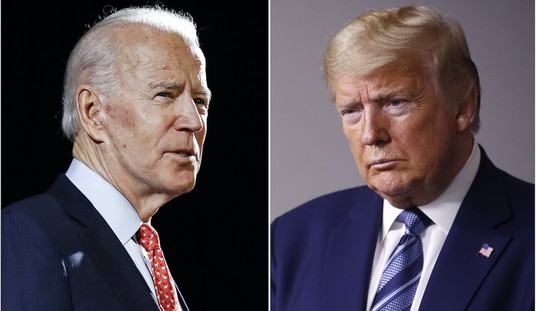Did you get here Googling “exotic wood raids?” Is this not what you expected? I’m sorry. Settle in for some hot public policy.
Last we checked in with Gibson, the famed Tennessee guitar maker had been raided twice by armed federal agents, who seized almost $500,000 in exotic wood imported from India and Madagascar and shut down production. The ebony and rosewood in question have been used for decades to make the instrument’s fingerboards and are integral to their style and sound, the company said. (Great video background from Reason, here.)
This week, Gibson settled with the government in a “criminal enforcement agreement,” which means the feds won’t bring criminal charges after their three-year investigation. In exchange, Gibson acknowledged some of its imports from Madagascar violated environmental laws and agreed to pay a fine of $300,000 plus $50,000 to the National Fish and Wildlife Foundation, to be directed to preserving forests. It will also step up compliance efforts.
The admission of wrongdoing only applies to Madagascar wood imported and seized in 2009, not to Indian wood imported and seized in 2011. Gibson will be able to recover the wood seized in the 2011 raid, suggesting there was no evidence of wrongdoing in that raid.
The government admits as much in the agreement, which Gibson has posted in full on its website, along with the evidence against it:
The Government and Gibson acknowledge and agree that certain questions and inconsistencies now exist regarding the tariff classification of ebony and rosewood fingerboard blanks pursuant to the Indian government’s Foreign Trade Policy. Accordingly, the Government will not undertake enforcement actions related to Gibson’s future orders, purchases, or imports of ebony and rosewood fingerboard blanks from India, unless and until the Government of India provides specific clarification that ebony and rosewood fingerboard blanks are expressly prohibited by laws related to Indian Foreign Trade Policy. The Government agrees to provide Gibson notice of any such clarification from the Government of India in the future and a reasonable period of time (60 days or as otherwise agreed) to address the potential change in the understanding of the law as it relates to shipments received by or en route to Gibson.
Gibson invites everyone to check out the full report and evidence for themselves. It’s not a long read, and really gives you a feel for the complexity inherent in our regulatory system. Here, from the DOJ report is Gibson’s violation, which prompted two armed raids and three years of investigation:
Between June 20, 2008, and November 17,2009, Gibson did not ask for or obtain paperwork or official assurances from officials in Madagascar that the wood it was purchasing from Madagascar through its German supplier was legally harvested and exported from Madagascar, notwithstanding the information received by Gibson during the June 2008 trip to Madagascar. Before November 2009, Gibson further did not ask for additional paperwork or other confirmation from its supplier that the wood it was purchasing from Madagascar was legally harvested and exported, although the execution of the search warrant. Instead, Gibson relied on the fact that T.N.(the German supplier) was an established, FSC (Forestry Stewardship Council) chain of custody certified supplier. Before ordering or accepting delivery of the fingerboards, Gibson should have taken a more active role and exercised additional diligence with respect to documentation of legal forestry practices in the areas of Madagascar from which those shipments from its wood supplier may have originated. Information received by the Gibson representative during the June 2008 trip to Madagascar was not further investigated or acted upon, prior to the continuing placement of orders with the supplier, T.N. Information sent to company management by the Gibson representative and others following the June 2008 trip to Madagascar also was not further investigated or acted upon, prior to the continuing placement of orders with the supplier, T.N. Instead, Gibson continued to purchase Madagascar ebony after June 20, 2008.
Translation (allowing for the fact that I’m not a lawyer): A Madagascar law allows the export of finished fingerboards but not unfinished “fingerboard blanks,” which would leave the finishing work to Gibson, adding frets and shaving fractions of an inch off the wood pieces. A Madagascar company was given a special dispensation to export existing stocks of rosewood after the passage of this Madagascar law, and Gibson received that company’s wood through a German company, which was also certified by an outside environmental group as forest-friendly. It turns out, the Madagascar company did not have a dispensation for ebony, but Gibson was getting the wood through two respected dealers, as far as it was concerned. Because a Gibson employee visited Madagascar with Greenpeace in 2008 and prepared a report, which went to higher-ups, addressing some of the risks of violating Madagascar law, Gibson should have taken additional steps to prevent the import of this Madagascar ebony.
Is there technically a violation of the Lacey Act somewhere in there? Sure, arguably, and that’s the fun of very complex U.S. laws dependent on the interpretation of unclear foreign laws and enforced via byzantine reporting requirements.
The WSJ explains what businesses are up against in dealing with these laws, even when making good-faith efforts to comply:
Gibson’s predicament, which raises concerns for musical-instrument makers and other importers of wood, illustrates the pitfalls of complying with U.S. law while dealing with middlemen in faraway countries whose legal systems can be murky.
But why, if the 2009 raid’s Madagascar wood is the wood that violated the Lacey Act, were there no criminal charges brought between the 2009 raid and the 2011 raid? Could it be there wasn’t much of a criminal case, here?
In that case, shutting down production in a second armed federal raid seizing hundreds of thousands of dollars in wood, which (oops!) didn’t violate any laws would be a pretty keen way to get someone to cop to the violations of the first raid without a trial, wouldn’t it?
Gibson contends it had to settle to save money and move on with the company’s business:
“We felt compelled to settle as the costs of proving our case at trial would have cost millions of dollars and taken a very long time to resolve. This allows us to get back to the business of making guitars. An important part of the settlement is that we are getting back the materials seized in a second armed raid on our factories and we have formal acknowledgement that we can continue to source rosewood and ebony fingerboards from India, as we have done for many decades.”
Despite the fact that, “…the government acknowledges that Gibson has cooperated with the Government and the investigation conducted by the Fish and Wildlife Service”, Gibson was subject to two hostile raids on its factories by agents carrying weapons and attired in SWAT gear where employees were forced out of the premises, the production was shut down, goods were seized as contraband, and threats were made that would have forced the business to close.
CEO, Henry Juszkiewicz commented, “We feel that Gibson was inappropriately targeted, and a matter that could have been addressed with a simple contact a caring human being representing the government. Instead, the Government used violent and hostile means with the full force of the US Government and several armed law enforcement agencies costing the tax payer millions of dollars and putting a job creating US manufacture at risk and at a competitive disadvantage. This shows the increasing trend on the part of government to criminalize rules and regulations and treat US businesses in the same way drug dealers are treated. This is wrong and it is unfair. I am committed to working hard to correct the inequity that the law allows and insure there is fairness, due process, and the law is used for its intended purpose of stopping bad guys and stopping the very real deforestation of our planet”.
Juszkiewicz and others in the music industry remain worried about those, including individual musicians, who might get ensnared in Lacey Act violations:
George Gruhn, who owns a vintage guitar shop in Nashville, said he wasn’t surprised that Gibson officials accepted the settlement.
“Regardless of the merits of the case on either side, it would have cost more than that by far to pursue it,” he said. “Even if they thought they conceivably they could win, it would have probably cost more than $1 million to do it…
“The problem is that virtually every instrument prior to 1970 contains Brazilian rosewood,” he said. “Even on a Gibson LGO, which was their cheapest student guitar.”
The government has said it won’t go after individual guitar owners, but the law does not prevent it. Early this year, Sen. Rand Paul introduced a law that would strike references to “foreign” law from the Lacey Act and substitute a civil penalties for the law’s criminal ones.
For now, Gibson will pay its $350,000 after a three-year investigation that cost us God knows how much to make amends for four shipments of wood totalling $262,000.








Join the conversation as a VIP Member